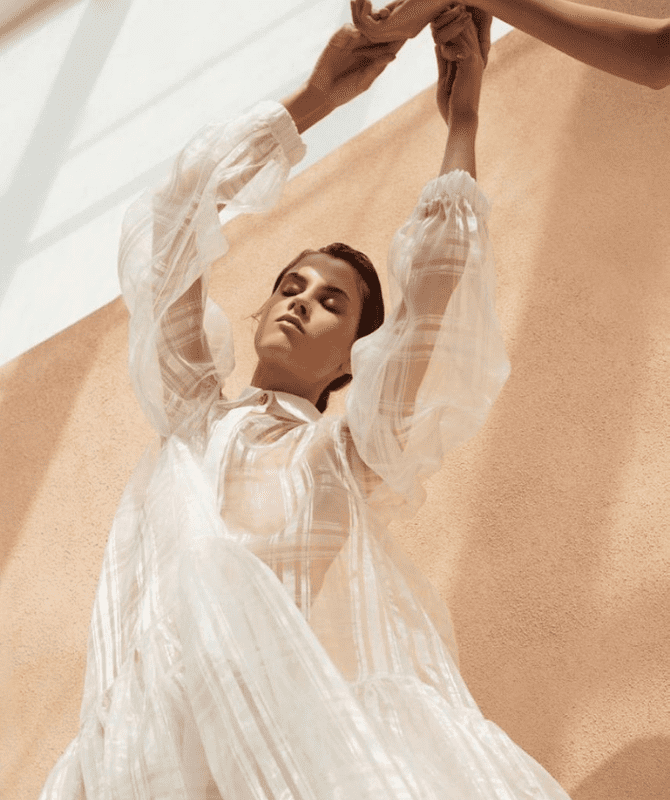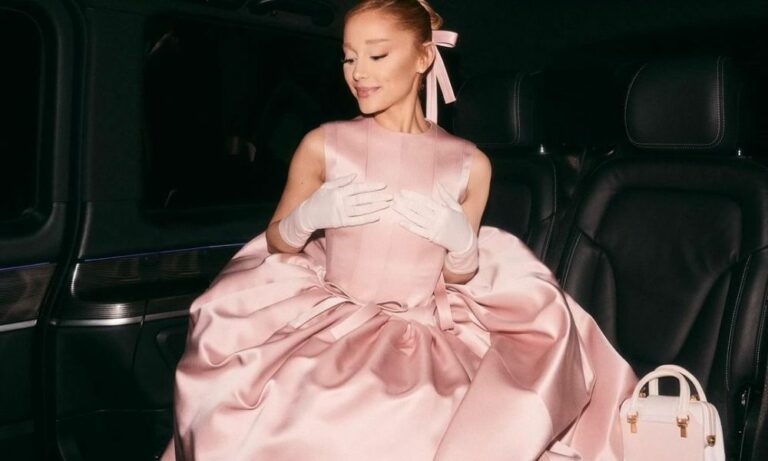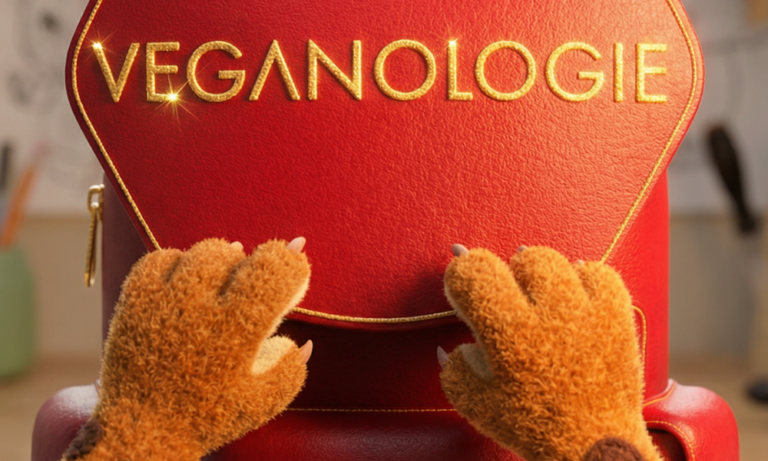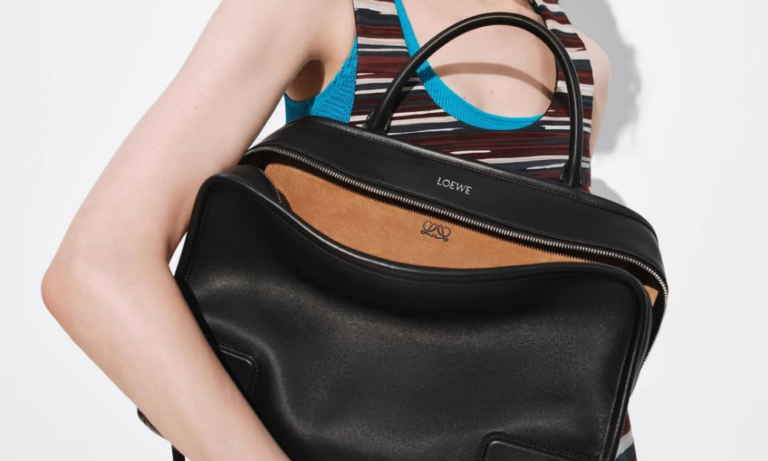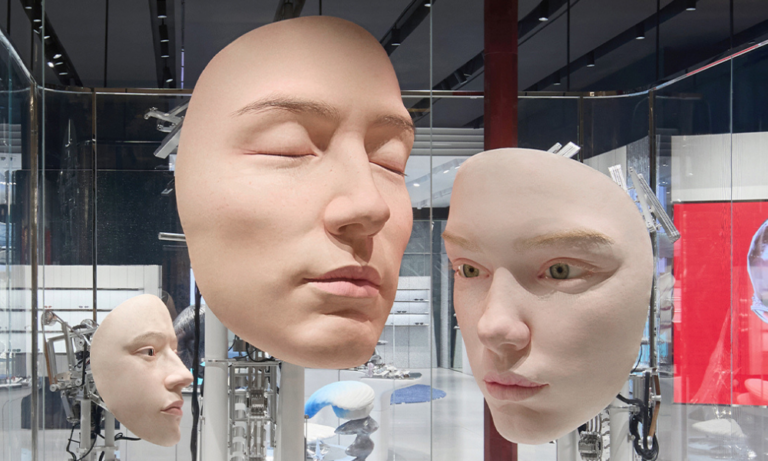Shahd is the embodiment of all of the above but she also brings “ethics” to fashion with a very progressive twist. I remember when I first came across Shahd’s brand years ago at Saudi Design Week and was completely taken aback by the wonderful craftsmanship and immaculate quality all coming from the Arabian Peninsula. What Shahd represents is a designer who is mastering design/business acumen and pure substance.
Shahd AlShehail’s career has been dedicated to building sustainable and scalable models to promote social and economic development. In 2014, she co-founded Project JUST, a social enterprise that leverages technology to create transparency and accountability in fashion supply chains.
In 2016, she launched Abadia, a brand dedicated to preserving craftsmanship through working with artisans across the Arabian peninsula and creating products that provide them with a sustainable source of income. Shahd has been a guest speaker at major global events such as the Harvard Social Enterprise Conference, the Global Competitiveness Forum, and TED. Shahd holds an MBA from Johns Hopkins University, is an Acumen global fellow, and has worked on economic development projects globally in Rwanda, Armenia, and India.
Tell us Shahd, how did the fashion journey start for you?
My aunt, Naeema AlShuhail, has a huge role to play in cultivating my love for fashion. She was and still is an avid traveller, back in the 70s and 80s she used to travel the world in search of unique fabrics. It showed me that fashion can be an expression of identity and personality and grew to particularly love the craftsmanship and the level of skills and details that go into the making and design process of fashion.
How has being ethical shaped your design “ethos”? Do you also feel that the importance of ethics is also translated to more than just fashion? Is it also time for a value ‘reset’?
Abadia is an ethical luxury brand. We recognize that traditional crafts are intrinsically linked to culture and we value the knowledge and stories of the artisans that practice them. Unfortunately, the speed and efficiency of mass production have meant that many traditional crafts are at risk and are beginning to dissipate. Our mission is to preserve this craftsmanship and to generate sustainable income for the artisans, so they are more likely to pass their skills on to the next generation. We work closely with artisan groups, developing and incorporating handmade crafts into our ethically made, timeless designs.
We also consider our impact at every stage of our design process. We respect the people and the resources that go into each of our pieces, from fabric choice, in-house manufacturing and timeless design.

We are not perfect, but we do strive to be honest and transparent about the work we do. The fashion industry can gloss over the stories of how clothing came to be, often hiding injustices happening around the world.
“We believe the people that make clothing should be as valued and respected as the people wearing it. At Abadia, we are on an eternal journey of growth.”
Do you feel that the fashion landscape has shifted in the last two years?
Over the last few years, consumer awareness about sustainability in fashion has increased dramatically and continues to grow. Every year, we see more and more innovation in sustainable materials and ethical manufacturing practices. There is still a long way to go, but I’m optimistic about the direction and seeing a lot more appreciation of quality, ethical practices and local production.
Who are the people or the elements that impacted you the most in your design aesthetic?
Our inspiration starts from cultural storytelling, and we build from there. We construct and deconstruct and get creative on how you can develop and present something very traditional in a modern way while paying an authentic homage to its origin. We take inspiration from our historic fashion representations that are authentic and forgotten. Nature is a huge inspiration as well, and especially the date palm tree.

How can we further elevate the Saudi fashion landscape and beyond i.e. manufacturing, sustainable thinking?
Educating people about the fashion system is essential to behaviour change and that takes time. We need to exercise patience and kindness and have conversations with as many people as possible. At the same time, we have to live our values and lead by example.
“One of the main focuses of Vision 2030 is promoting a strong sense of national identity as well as supporting women through employment. Those two things are at the core of Abadia’s work, and I see them as huge opportunities for developing the sector.”
Who is the Abadia lady?
The Abadia lady is a global multidimensional woman whose fashion choices echo her personal values and lifestyle. She is one who seeks out unique pieces, who cares about the impact of her decisions on people and the environment, and who takes pride in her personal and cultural stories. When a woman purchases an Abadia piece, she makes a long-term investment in a beautiful piece with a beautiful story and she is likely to preserve it and even pass it down to the next generation.

How did the name come about?
The name Abadia is derived from the Arabic words for desert (badiah) and timelessness (Abadi). This is a nod to the brand’s commitment to preserving culture and craftsmanship, as well as creating timeless and ethically made products.
What is style to you?
It’s an expression of identity and personality. It’s something very personal
Less is more or more is more?
From an aesthetic perspective, we walk a fine line between minimalism and maximalism and don’t think a woman needs to settle for one vs the other. From a brand values perspective, we of course believe that less is more in terms of impact on the environment.

Now, read Hatem Alakeel’s exclusive roster of interesting interviews in his Gems of Arabia column here.
{“keyframes”:[{“transform”:”translate3d(100%, 0, 0)”,”offset”:0},{“transform”:”none”,”offset”:1}],”options”:{“id”:”preset-slideInRight”,”delay”:0,”duration”:1000}} .stk-post [data-anim-name=”preset-slideInLeft”]:not(#stk):not([data-anim=”false”]) { transform: translate3d(-100%, 0, 0) } .stk-post [data-anim-name=”preset-slideInLeft”]:not(#stk):not([data-anim-m]), .stk-post [data-anim-name=”preset-slideInLeft”]:not(#stk):not([data-anim-m=”false”]) { transform: translate3d(-100%, 0, 0) }{“keyframes”:[{“transform”:”translate3d(-100%, 0, 0)”,”offset”:0},{“transform”:”none”,”offset”:1}],”options”:{“id”:”preset-slideInLeft”,”delay”:0,”duration”:1000}} .stk-post [data-anim-name=”preset-slideInRight”]:not(#stk):not([data-anim=”false”]) { transform: translate3d(100%, 0, 0) } .stk-post [data-anim-name=”preset-slideInRight”]:not(#stk):not([data-anim-m]), .stk-post [data-anim-name=”preset-slideInRight”]:not(#stk):not([data-anim-m=”false”]) { transform: translate3d(100%, 0, 0) }